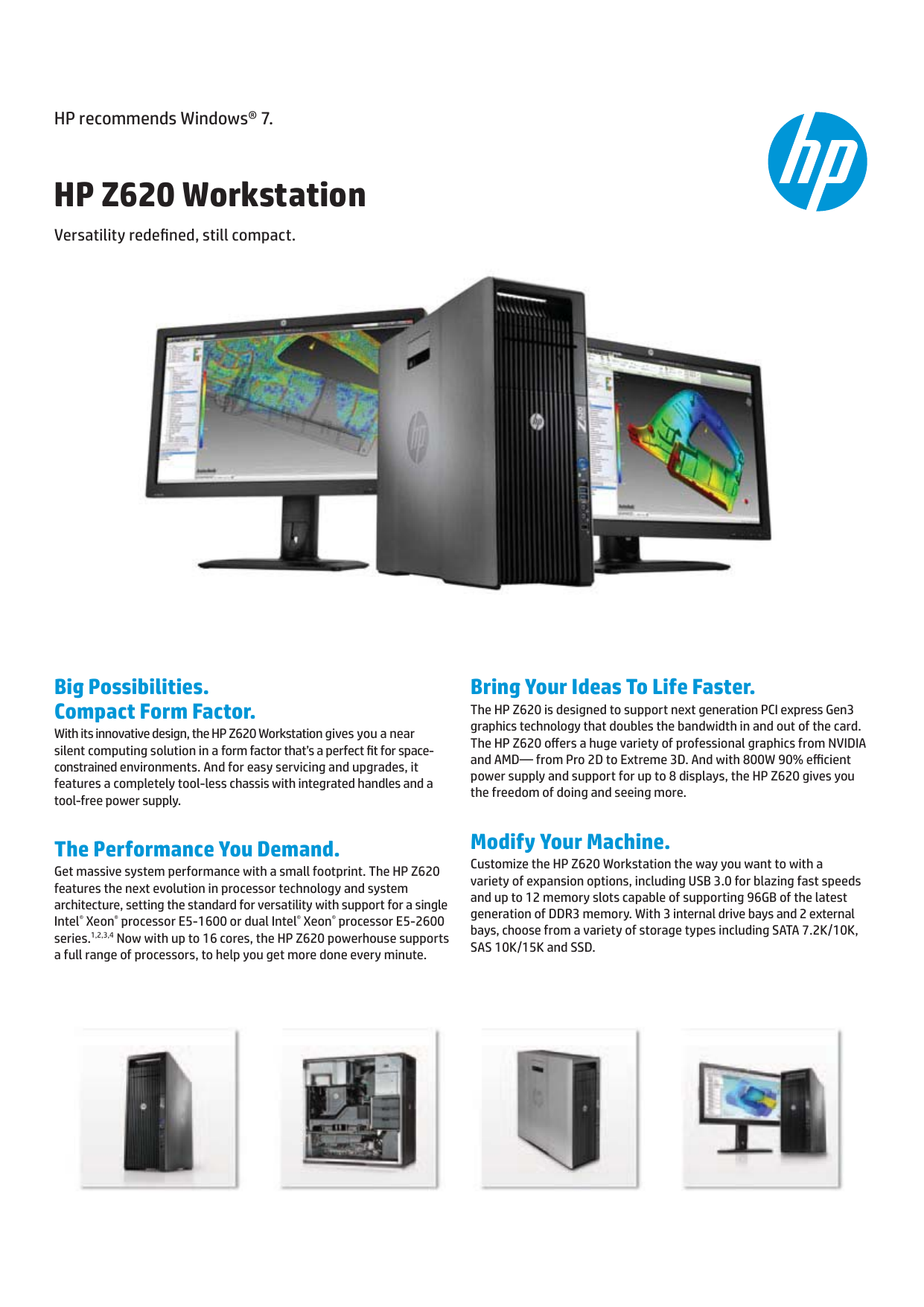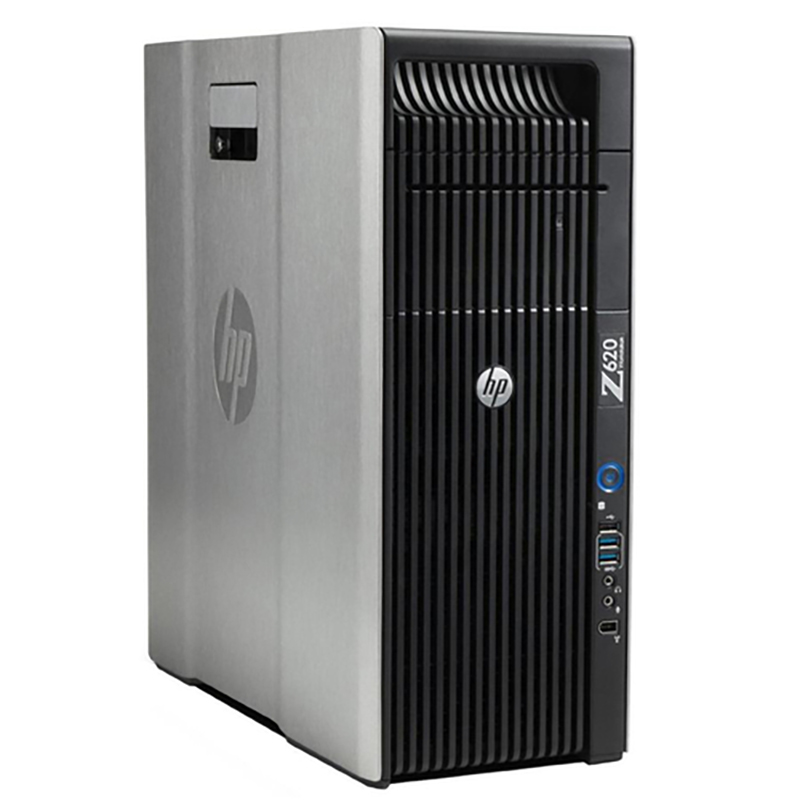
When HP offered us a chance to review its new Z620 workstation, I was curious but cautious. The advent of multi-core processors back in 2005 dramatically reshaped the workstation market; consumer PCs now offer core counts at a tenth the price (or less) of what such systems cost in 2004. A dual-socket system capable of handling two octal-core/16-thread processors with a turbo speed of 3.8GHz is impressive on paper, but could the box live up to its potential in real life?
When UPS dropped the mid-tower-sized box off, I groaned inwardly. Given the components (16GB of RAM, 800W PSU, 16 CPU cores, and a Quadro 6000), I’d expected a full-sized tower. Any mid-tower packing the same components would, I thought, undoubtedly be a veritable wind tunnel under load.
The 2nd processor kit for the HP Z620 system includes the 2nd CPU and memory module, the Intel Xeon E5-2600 series processor, and the heat-sink for the processor. Memory must be ordered separately, as it is done with previous generation systems. The HP Z620 has 8 DIMM slots for DDR3 ECC memory. The first generation Z620 using the Xeon Sandy-Bridge processor supports up to 64GB of 1333MHz memory. The second generation Z620 using the Xeon Ivy-Bridge processor supports up to 196GB of 1866MHz memory. Choose more memory to improve overall system performance.
Happily, I couldn’t have been more wrong. The Z620 is built with an attention to detail that would impress even the most jaded user. HP sent along a base configuration, as shown below, but also included two additional components to allow us to measure the benefit of the upgrades: A Quadro 6000 GPU, and a 256GB Micron C400 SSD.
- HP Z620 800W 90% Efficient Chassis
- HP Z620 Country Kit
- Microsoft Windows 7 Professional Edition 64bit OS
- 2x Intel Xeon E5-2690 2.90Ghz 20MB 1600 8C CPUs
- NVIDIA Quadro 4000 2GB Graphics
- 16GB DDR3-1600 (8x2GB) 2CPU RAM
- 1TB 7200 RPM SATA 1st Hard Drive
- Slot Load 8X SuperMulti DVDRW ODD
- Base Price: $10,520
- Additional Equipment: Quadro 6000 ($3999)
- Micron RealSSD C400 (256GB): $380
- Upgraded Price: $14,900

Workstation features, workstation pricing
Before we launch into the review, let’s pause and consider some context. The Z620 is built around Intel’s new E5 Xeon family. These processors are based on the same design as the consumer-level Core i7-3960X that Intel launched last year; top-end E5’s offer up to eight cores and 20MB of L3 cache as compared to the 3960X’s six-core/15MB L3 arrangement.
The Z620 is an update to the older, Z600 series. It supports eight-core CPUs (the Z600 topped out at hexa-core), offers 2x PCIe 3.0 x16 slots, one PCIe 3.0 x8 slot (x4 electrically), one PCIe 2.0 x8 slot (also x4 electrically), an PCIe 2.0 x4/x1 slot, and one legacy PCI slot. There are bays for three 3.5-inch drives and two 5.25-inch externals. The 800W, 90% efficient power supply is capable of driving up to 300W of GPU power; the Z600 only supported a 150W GPU. Finally, the number of LAN ports has been bumped up to 2x1Gbit Intel solutions as opposed to the Z600’s single 1Gbit Broadcom. Nvidia’s Tesla GPU Compete platform is also explicitly supported.
The Z620 we reviewed is at the top end of HP’s price range for the family — entry systems start at $1649. If the five-figure price tag on our unit has you seeing stars, it may help to understand a bit more about the workstation environment and associated costs. A single copy of Autodesk’s 3ds Max 2013, for example, is $3999. The humans who use the hardware likely earn significantly more than that a month. Production companies, meanwhile, are often charged penalties if they fail to meet a deadline.
When you add up the associated costs, a $10,000 PC accounts for just a fraction of the company’s total expenses. Companies still care about maximizing performance per dollar spent, but reliability and 24-hour replacement guarantees matter more than the upfront hardware expense.

Hp Z620 Ram Slots Download
Next page: Inside the box…
Hp Z620 Memory Configuration And Optimization
- 1 of 5